
I’m hard of hearing, and my best friend is completely deaf. We were at a coffee shop, chatting in sign language, when a haughty mother demanded we stop signing, saying it was “disruptive” and “inappropriate.” The entire coffee shop came to a standstill when a server intervened and reminded her what inclusion really means.
I’m Dottie, 22 years old, and I’ve been hard of hearing since the day I took my first breath. Growing up meant learning to navigate two worlds: the hearing world, which expected me to lip-read and speak clearly, and the deaf world, where my hands could sing stories faster than my voice ever could.
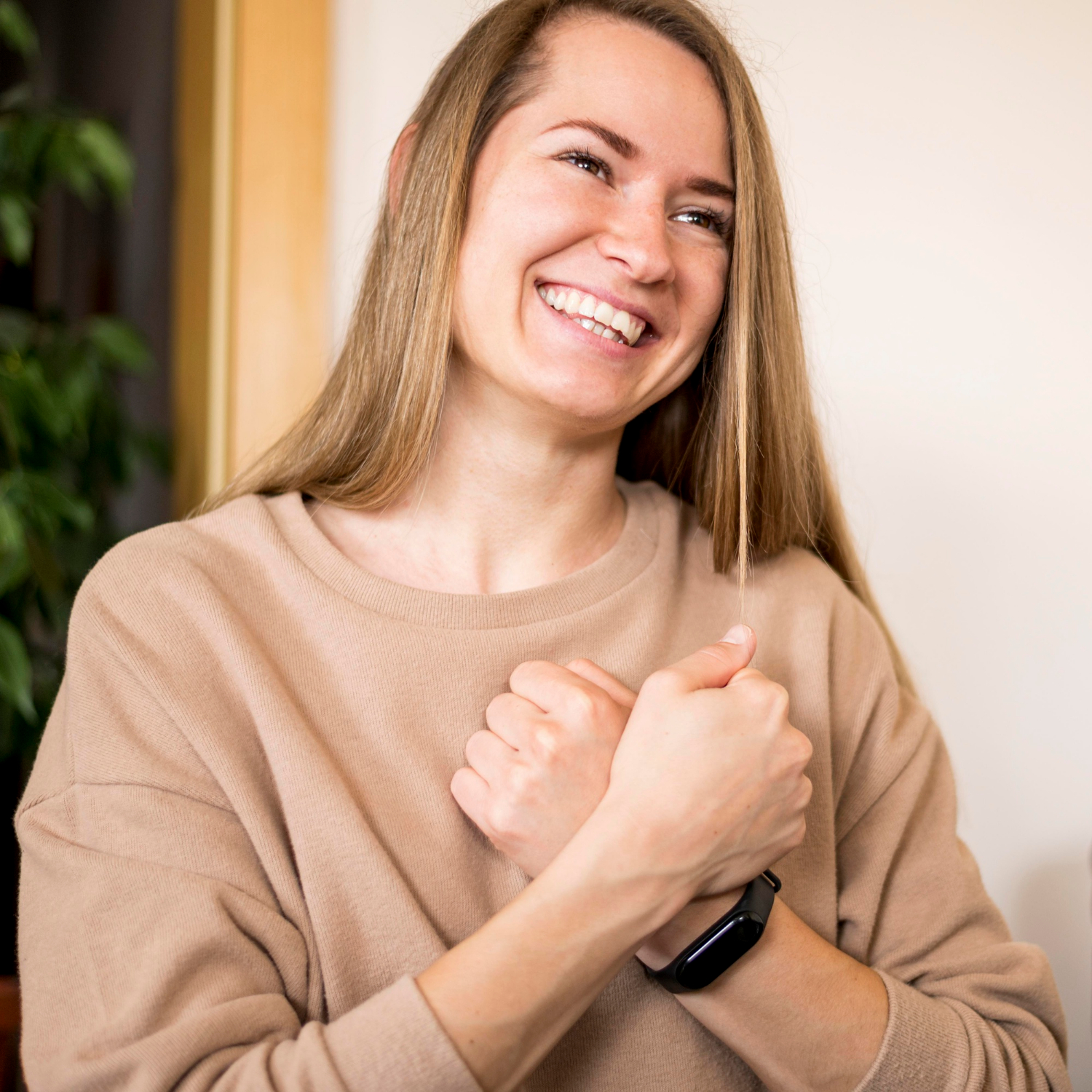
A happy woman communicating using sign language | Source: Freepik
Most days, I barely notice the stares anymore. I don’t mind the whispers. But that day wasn’t like most days.
“Maya’s already in,” I thought, walking through the glass doors of the Rosewood Café, our usual Tuesday spot.
The familiar smell of cinnamon and freshly baked bread enveloped me like a warm hug, and I immediately spotted my best friend, her wavy hair blowing in waves as she laughed at something on her phone.
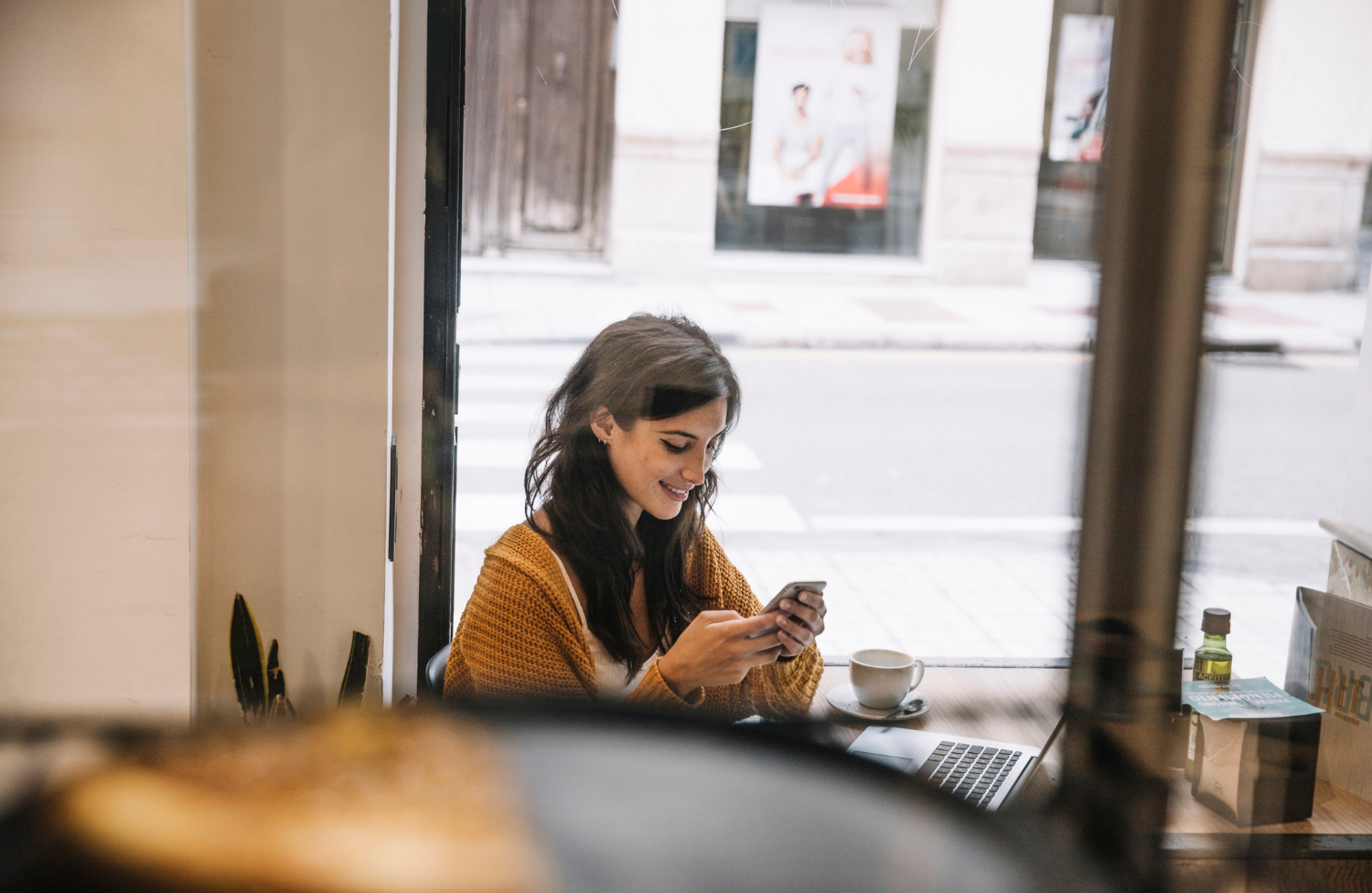
A woman looking at her phone and smiling | Source: Freepik
Unlike me, Maya can’t hear anything, not even muffled sounds or background noise. She’s completely deaf and only uses sign language to communicate.
But that’s never been a barrier between us. Not once in the seven years we’ve been friends. If anything, it’s made our friendship stronger and deeper.
We’ve held entire conversations in crowded rooms without saying a word, laughing until our stomachs hurt, while everyone else wondered what was so funny.
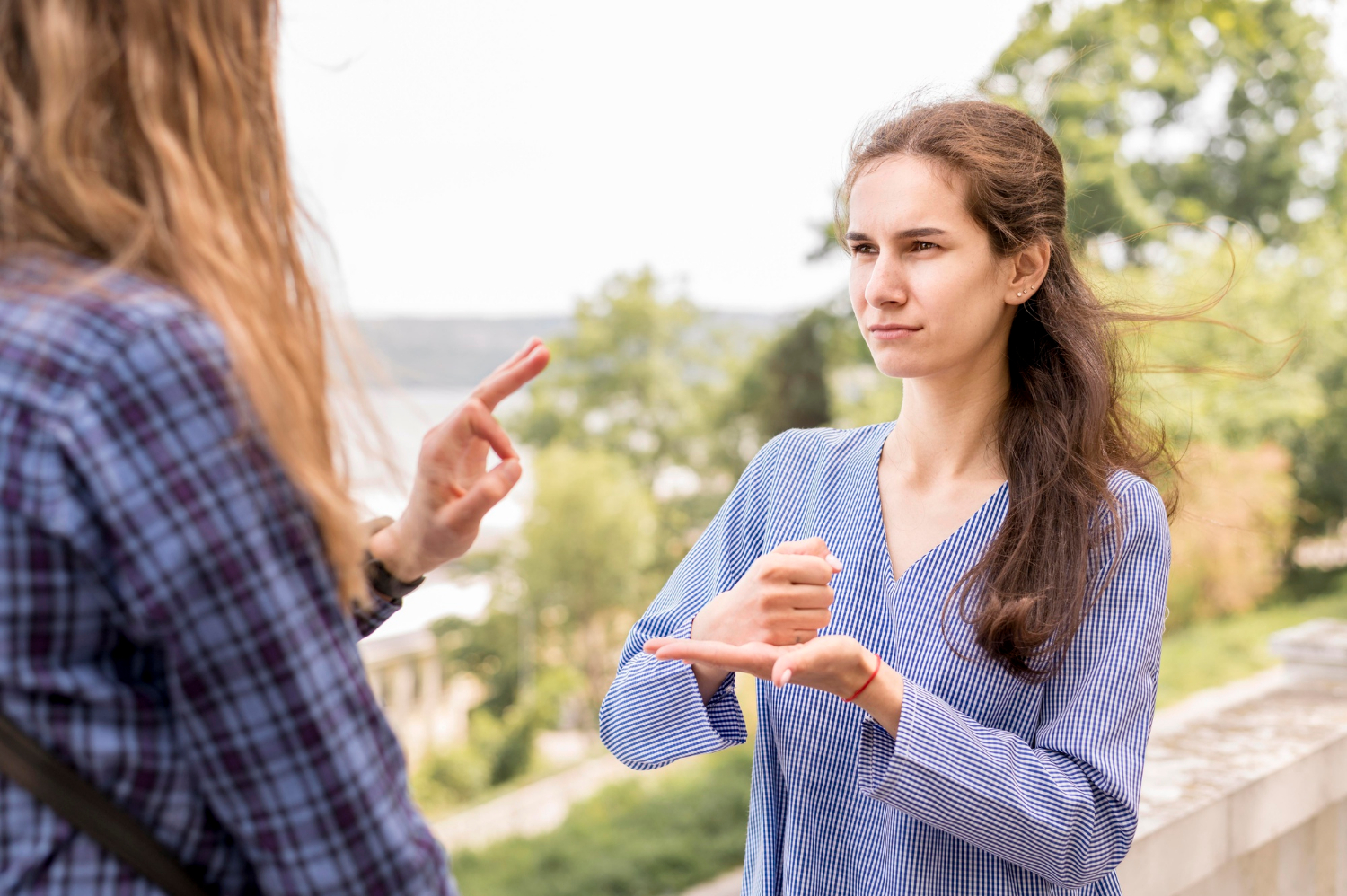
Two women communicating using sign language | Source: Freepik
Maya looked up as I approached, and her face lit up. She signed with a dramatic flourish and said, “Finally! I was starting to think you’d chickened out.”
“Traffic was crazy,” I signed, settling into the worn leather chair across from her. “Besides, Mrs. Henderson cornered me again about the community garden.”
“That woman needs a hobby that doesn’t involve interrogating twenty-somethings about composting!” Maya countered, her hands dancing in the air with practiced grace.
We returned to our usual rhythm: speaking in sign language, laughing, and occasionally saying something out loud when we felt like it.
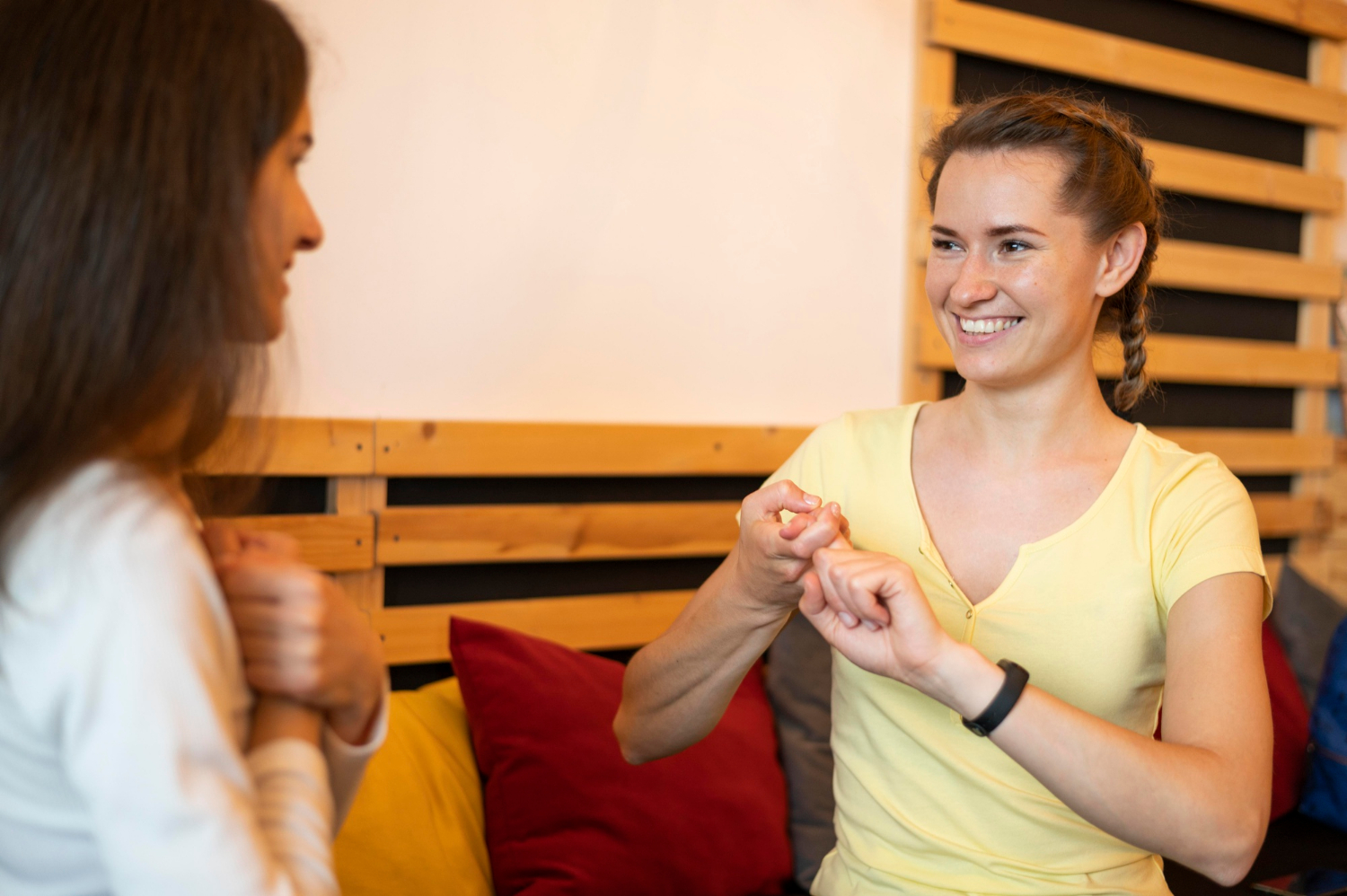
A delighted woman gesturing to her friend | Source: Freepik
Maya was telling me about her disastrous attempt at making sourdough when I spotted a curious little boy, about seven or eight years old, sitting three tables away with his mother.
Her eyes were wide open, and she watched our conversation with that innocent curiosity that children have before the world teaches them to look away.
I smiled at him and said a simple “hello!” His face broke into a smile, and he wiggled his fingers back in what might have been an attempt at beckoning.
“That’s adorable,” Maya said, noticing the exchange. “He’s trying to imitate us.”

A boy drinking from a ceramic cup while looking curiously | Source: Freepik
The boy’s mother, however, wasn’t amused. She had been furiously typing on her phone. When she looked up and saw her son’s enthusiastic finger-wiggling, her expression soured like milk left in the sun.
“Stop!” she yelled at her son, grabbing his hands and forcing them down. “That’s not done.”
Maya and I exchanged glances. We’d seen it before: the awkwardness, the quick corrections, and how some parents treated sign language as if it were contagious.
But usually, people just looked away. This woman was different. She kept glancing at us, her jaw tightening.

An angry woman with an unkind look | Source: Pexels
“Shall we go somewhere else?” Maya asked, her hands now smaller, her voice low and hurt.
“Not at all,” I replied, with deliberate, proud movements. “We have every right to be here.”
But even as I said it, I felt that familiar knot forming in my stomach—the one that always appeared when I had to defend my existence when someone made me feel like I was asking too much simply for being myself.

A person showing a thumbs up | Source: Freepik
The boy’s mother stood up abruptly, her chair hitting the floor with a sickening screech. She approached our table, her son behind her, head bowed, embarrassment radiating from her small frame.
“Excuse me,” he said, his voice falsely polite, barely concealing his irritation. “Could you stop doing… that?”
I blinked, trying to make sure I understood correctly. “Do what, exactly?”
“The hand gestures. The waving. My son is trying to eat and you guys are really distracting him.”

An angry woman screaming | Source: Pexels
The words fell hard, like a door slamming in my face. Maya’s hands froze mid-signal, and I could see in her eyes the sharp edge that always appeared when someone crossed the line.
“Do you mean speaking in sign language?” I asked.
“I don’t care what you call it!” the mother snapped. “It’s disturbing. And, frankly, it seems aggressive. My son shouldn’t have to witness this kind of… display while he’s trying to learn good table manners.”
The cafe froze around us. Conversations stopped mid-sentence, and coffee cups stopped mid-lip position.
I could feel every eye in the room, and for a moment, I was eight years old again, standing in front of my third-grade class as my teacher explained to the other kids why I was “different.”
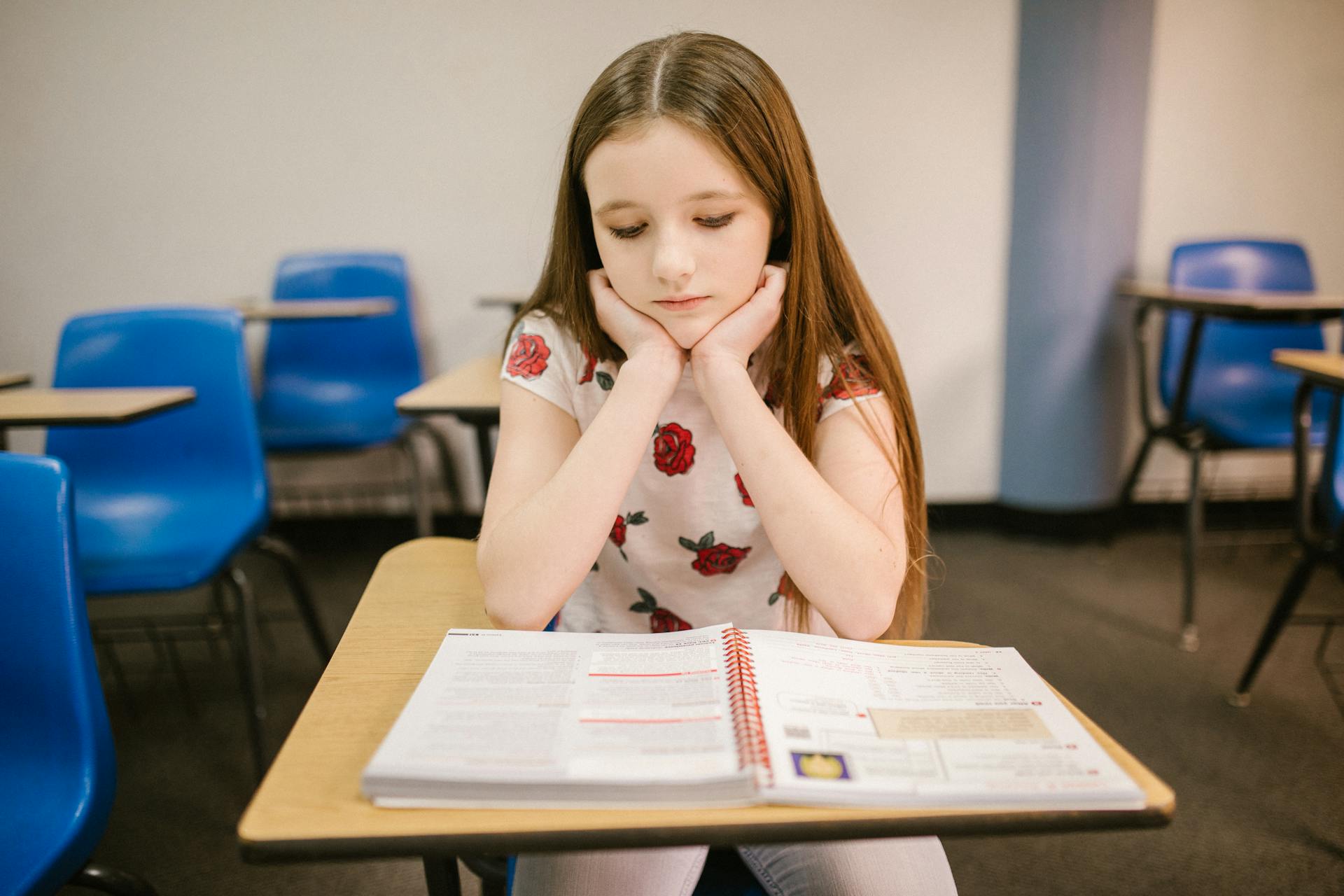
A sad girl sitting in her classroom | Source: Pexels
“Actually,” I said, my voice finding a strength I didn’t know it had, “this could be a perfect opportunity to teach your son that people communicate in different ways. It’s a beautiful lesson about diversity.”
He let out a harsh laugh that made me flinch. “Oh, please! Spare me the lecture on political correctness. This is exactly what’s wrong with today’s society. Everyone wants to be special, everyone demands attention. It’s selfish.”
Maya’s face had paled, her usual confidence shaken. Although she couldn’t hear anything, she could read lips and understand. I reached across the table and took her hand, squeezing it gently.
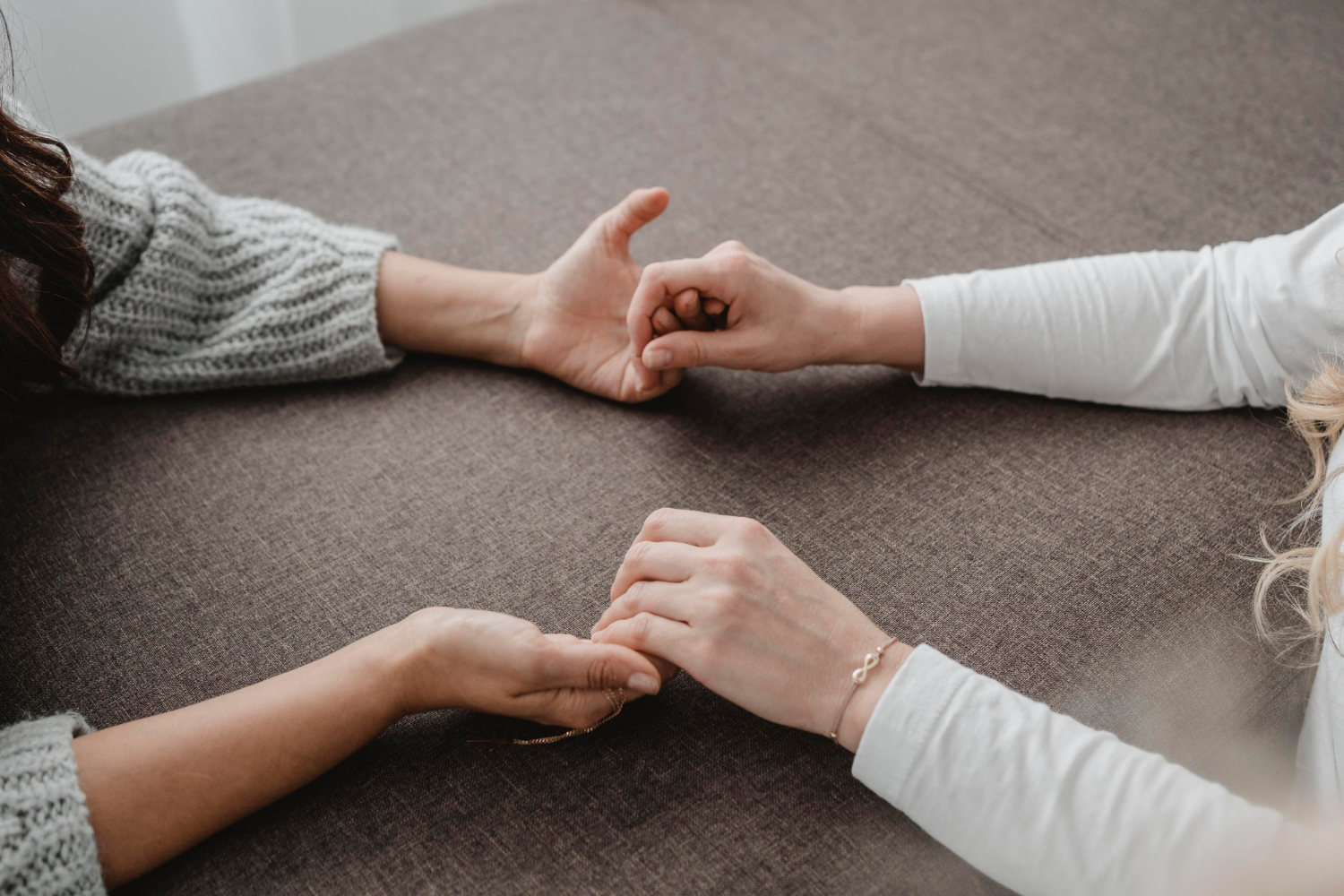
Two women holding hands | Source: Freepik
“There’s nothing selfish about existing,” I turned to the woman.
“Exist?” Her voice rose an octave. “You call that frantically gesticulating? It sounds like you’re casting spells or something. It’s weird and inappropriate, and I shouldn’t have to explain to my son why grown women are sitting in a public place making a spectacle of themselves.”
Her son tugged on her sleeve. “Mom, please…”
“Not now, Tyler,” she snapped, not taking her eyes off us.

A worried child | Source: Freepik
It was then that I noticed him approaching out of the corner of my eye. James, one of the regular waiters, was walking toward us with a coffee pot in one hand and the kind of determined expression that suggested he’d heard enough.
“Is everything okay here?” he asked, his voice calm but with an undertone that made the woman stiffen.
“Not really,” she said, turning her attention back to him. “These two have caused a scene with their gestures and are disturbing the other customers. I think you should ask them to stop or find a more appropriate place for their… activities.”
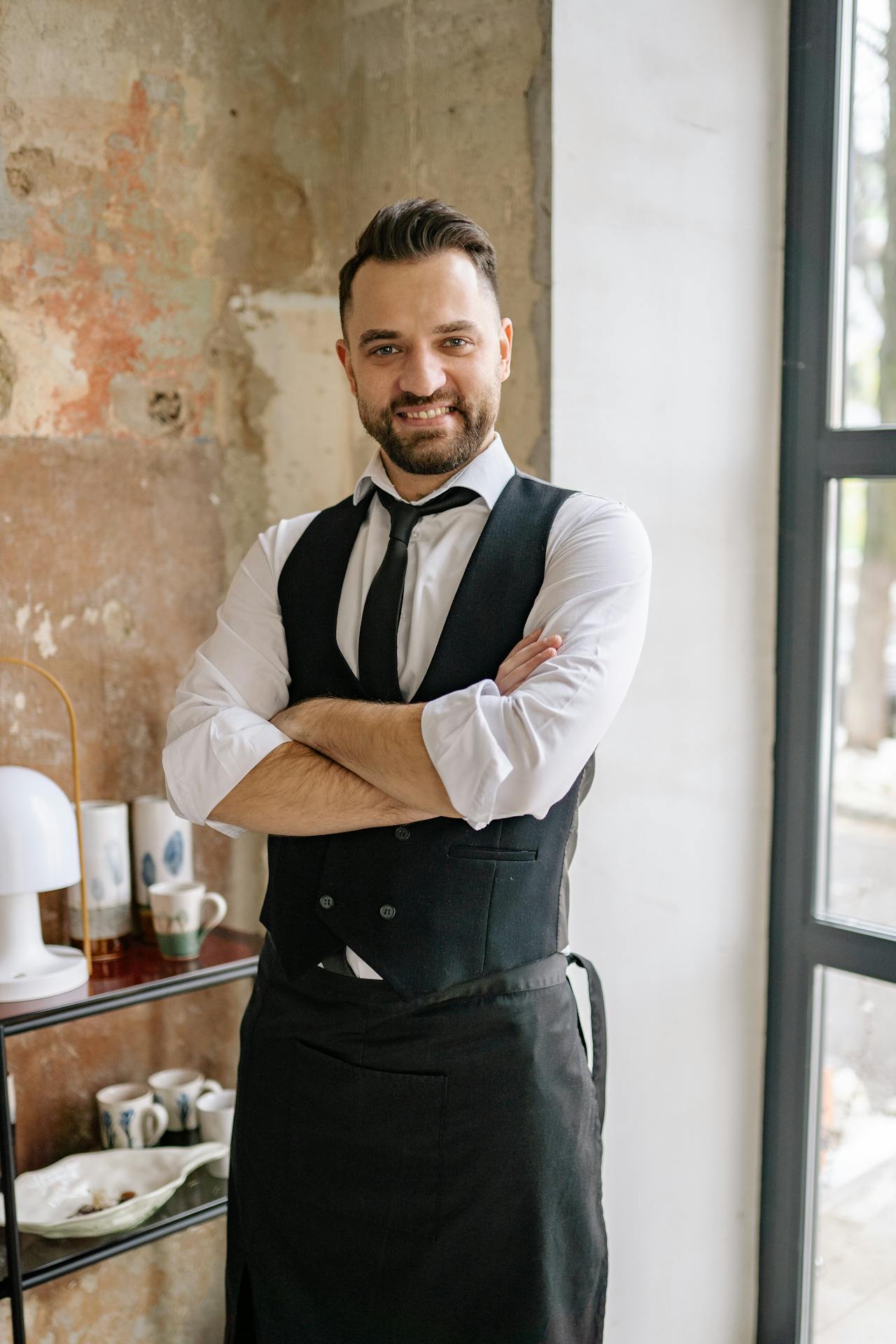
A smiling waiter | Source: Pexels
James put down the coffee maker and looked at her directly, his expression unchanged. “Ma’am, I’ve been watching this entire interaction, and the only person causing any discomfort is YOU.”
The woman’s mouth fell open. “What do you mean?”
“Sign language isn’t disturbing,” James continued. “It’s a legitimate form of communication used by millions of people. What is disturbing is someone harassing customers for the crime of having a conversation.”
I felt tears welling up, but for once they weren’t tears of frustration or pain. They were tears of gratitude and relief at being defended by someone who understood.

An emotional woman with teary eyes | Source: Pexels
“Now,” James said, turning to Maya and me with a genuine smile, “Would you like our chocolate chip cookies? They’re fresh out of the oven, and it’s on the house today.”
The woman’s face had turned a mottled red. “This is outrageous. You can’t…”
“Actually, I can,” James interrupted gently. “This coffee shop believes in treating all customers with respect and dignity. We do not tolerate any form of discrimination.”
A soft burst of applause erupted from a table near the window and spread through the cafeteria like ripples. The woman looked around wildly, realizing the room wasn’t on her side.
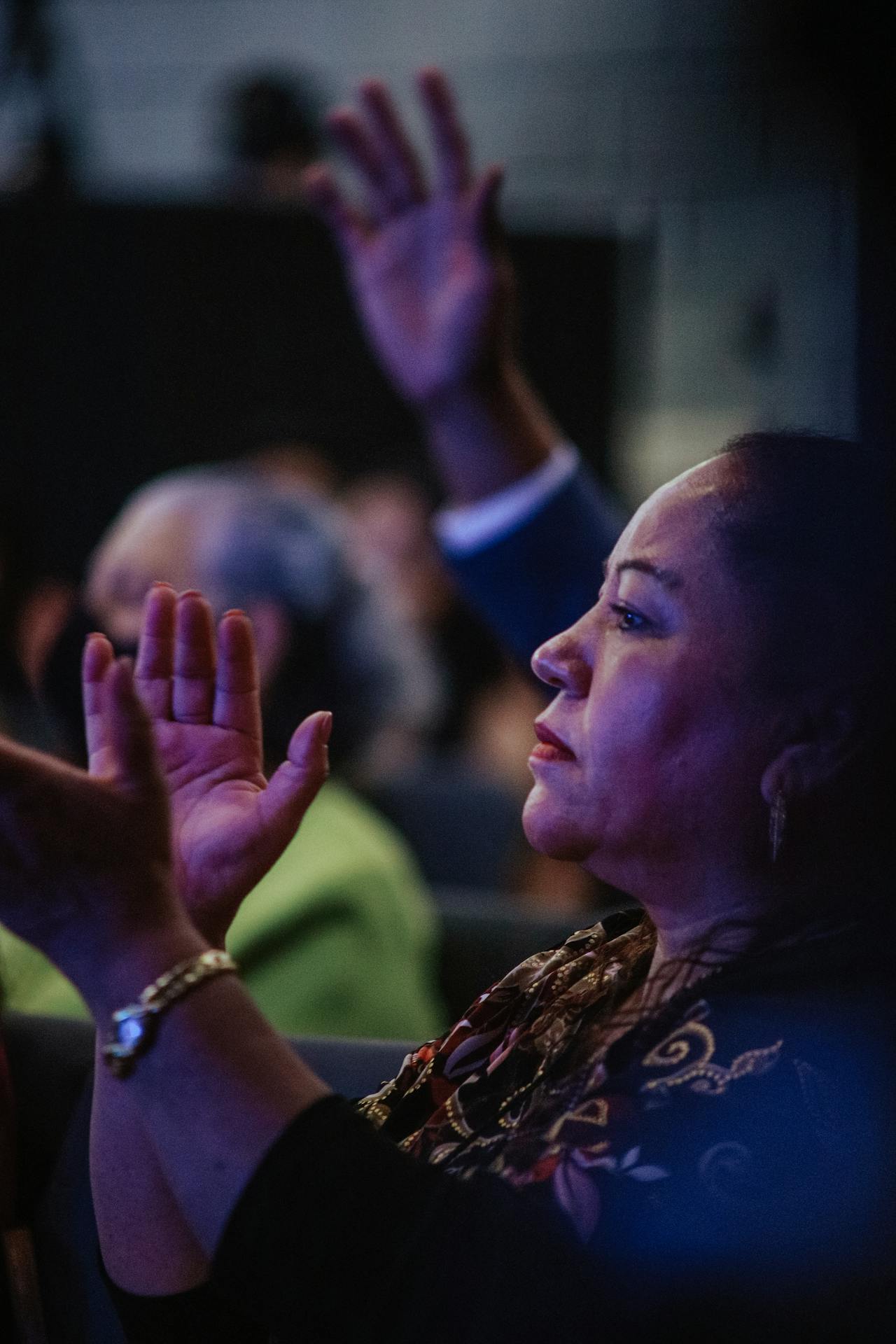
A woman clapping | Source: Pexels
“Come on, Tyler,” she murmured, grabbing her bag. “We’re leaving.”
But Tyler didn’t move immediately. Instead, he looked at his mother with the kind of clarity children sometimes possess that cuts through adult nonsense with surprising precision.
“Mom, why were you being mean to them? They weren’t hurting anyone.”
“Grab your jacket,” she growled, but Tyler was already walking toward our table.

A frustrated woman | Source: Pexels
He stopped a few feet away, looking nervous but determined. Then, slowly and carefully, he raised his hand and signed “Sorry” in perfect ASL.
Maya’s face lit up and she replied, “Thanks, honey. You didn’t do anything wrong.”
Tyler smiled and, before his mother could drag him away, he asked, emphasizing the words so we could understand his lips, “Can you teach me how to say ‘friend’?”
Maya showed him, with gentle, patient hands.
Tyler copied the movement, his face serious with concentration. “Dude!” he whispered, practicing the sign.
His mother finally reached him and grabbed him tightly by the arm. “We’re leaving. Now.”

Close-up of a person gesturing with their hand | Source: Freepik
As they headed for the door, Tyler turned once more and gave us the “friend” sign, his smile radiant despite his mother’s obvious anger. Maya and I waved back, and I felt something shift inside my chest, that familiar knot loosen and be replaced by something warmer and stronger.
James returned with a plate of cookies that smelled heavenly and tasted righteous. “I’m sorry you had to go through that,” he said as he set them down. “Some people don’t understand that different doesn’t mean bad.”
“Thank you,” I said, my eyes misty. “You didn’t have to do that.”
“Actually, yes,” he replied, with a sad but genuine smile. “My brother is deaf. I know what it’s like to see people treat someone you love as if they’re less than human just because they communicate differently.”

A man with his hand behind his ear | Source: Pexels
Maya reached across the table and squeezed my hand. “Are you okay?”
I nodded. “Yes.”
We sat there for another hour, signing and laughing and sharing those perfect cookies. Other customers smiled at us as they passed our table, and one elderly woman even stopped to tell us how beautiful sign language was.
As we prepared to leave, I thought of Tyler and his bright, curious eyes. I thought of his mother and wondered what had happened in his life to make him so afraid of difference.
But most of all, I thought about the choice we all have: to build bridges or walls, to teach fear or wonder, and to see disability as a limitation or simply another way of being human… and normal.

A happy woman gesturing with her hand | Source: Freepik
“Same time next week?” Maya asked as we gathered our things.
“I wouldn’t miss it!” I replied, waving my hands with pride, joy, and absolutely zero embarrassment.
Stepping out into the afternoon sun, I realized that some days start out truly ordinary and end extraordinary… not because of grand gestures or dramatic moments, but because of small acts of kindness and the simple truth that we all deserve to exist exactly as we are.
And sometimes, the world reminds you that you’re not the only one who thinks so.
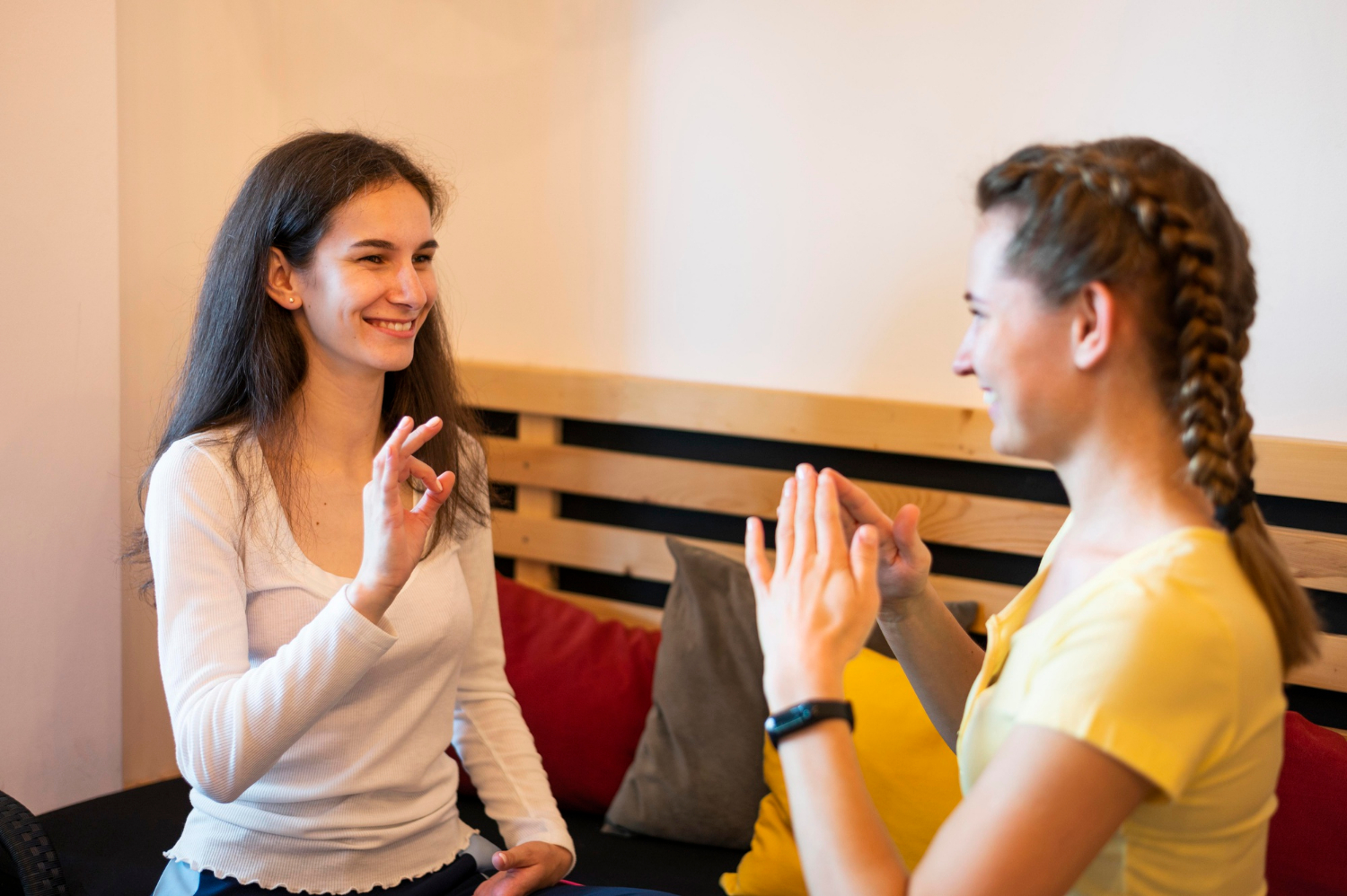
Two happy women communicating using sign language | Source: Freepik
This work is inspired by real events and people, but has been fictionalized for creative purposes. Names, characters, and details have been changed to protect privacy and enhance the narrative. Any resemblance to real persons, living or dead, or to real events is purely coincidental and not the author’s intention.
The author and publisher do not guarantee the accuracy of events or the portrayal of characters, and are not responsible for any misinterpretation. This story is provided “as is,” and the opinions expressed are those of the characters and do not reflect the views of the author or publisher.

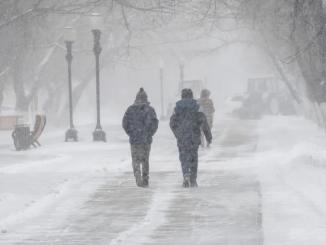
Leave a Reply